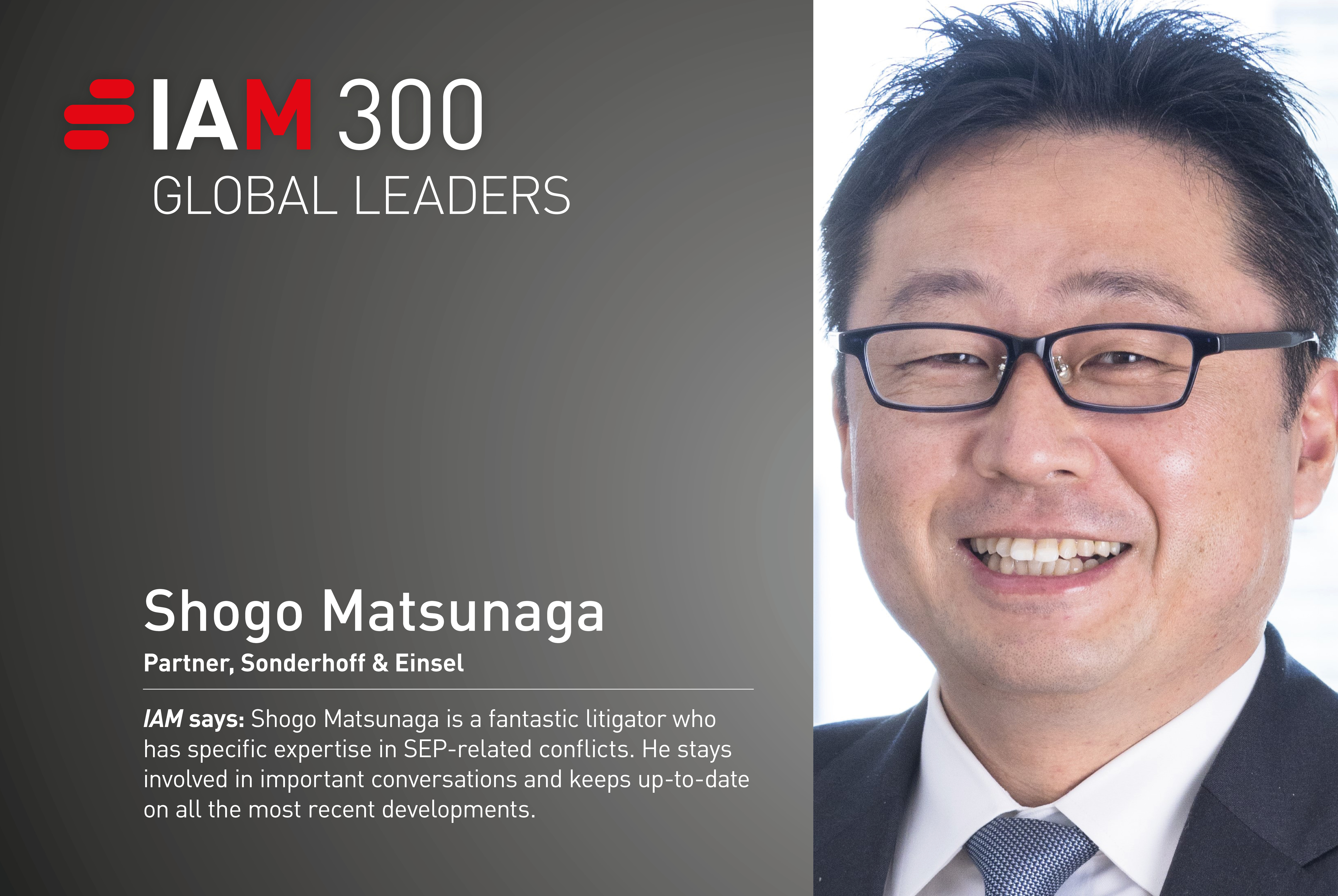Shogo Matsunaga
Within your extensive practice, you cover trade secret protection. What are your top tips for how clients can integrate this into existing IP strategies?
It is important to understand the extent to which segregation from other technical information, access restrictions and employee training are sufficient to ensure that trade secrets are protected under the Unfair Competition Prevention Act. By implementing an effective secrecy management system without an excessive burden on employees and costs, a company can protect the inventions that it has decided not to patent as ‘know-how’, and implement an open-close strategy over these.
As of this year, you are also an external lecturer at Yamaguchi University. What is your top piece of advice for students considering a career in IP law?
My engagement at the Management of Technology professional graduate school of Yamaguchi University aims to produce professionals who can think about business from both technological and managerial perspectives, as well as successfully oversee innovation processes to preserve the competitiveness of the global companies they will eventually belong to. Since the graduates are expected to work as managers who are familiar with the promotion of innovation and the strategic use of intellectual property, I always encourage my students to keep an eye on the development of important IP issues (as exemplified by the Good Faith Negotiation Rules for SEP Licensing) and to discuss these from a managerial perspective while they are still students.
What recent decisions or legislative developments are having the biggest impact on clients’ patent strategies in Japan right now?
As demonstrated by the recent IP High Court decision in Dwango v FC2, cross-border patent infringement cases are becoming increasingly complex as online technologies and services continue to develop. Therefore, companies must carefully consider the IP risks of their acts across different jurisdictions and the impact that these could have on their business.
What do rights holders in the IT/semiconductor space need to know about prosecution in Japan?
Rights holders in the IT space should carefully consider the location of an invention’s development, as well as the countries in which patents have been applied for.
You have authored many publications on SEP/FRAND issues in Japan. What changes would you make to the current landscape in the country, and do you think they are likely to happen?
Unfortunately, there have been very few court cases on SEP/FRAND issues in Japan since the IP High Court’s ruling in Apple v Samsung was handed down in 2014. The framework of the decision in this case - which has made it much easier for implementers to hold out compared to that of the Court of Justice of the European Union decision - is significantly different from the trend seen in European countries, especially in Germany, the United Kingdom and the Netherlands where the accumulation and harmonisation of court rulings is still progressing. As a result, there are domestic IoT implementers who negotiate in a manner that challenges the rules that are being formed globally, creating injunction and business risks.
FRAND licensing negotiations are essentially global negotiations and, in practice, they are taking place while citing court cases in Europe and the United States, in which good-faith negotiation rules are still being harmonised. Therefore, as a litigator, I am striving to obtain a judgment in Japan that shows good-faith negotiation rules and ensures the predictability of the parties. I am also writing articles that aim to change the current landscape. In order to achieve this goal, it is essential that not only the employees in the legal IP departments, but also the management of companies, are aware of the current issues and risks. To this end, I continue to submit articles, mainly to management, and I believe that this will eventually be useful to companies in altering the landscape.
Shogo Matsunaga
Partner
[email protected]
Shogo Matsunaga has represented many multinational rights holders in litigation and negotiation cases relating to patents and trademarks. He was one of the very first professionals in Japan to be involved in SEP issues, and his expertise has supported innumerable clients in FRAND negotiations. Mr Matsunaga’s work as a SEP specialist has earned him substantial recognition in the industry, and he has contributed to publications in the development of Japanese government policy on SEPs.
